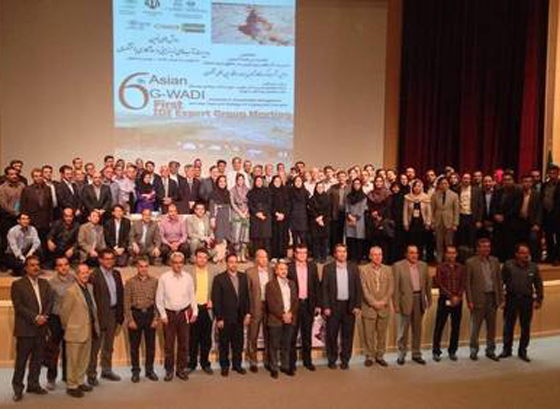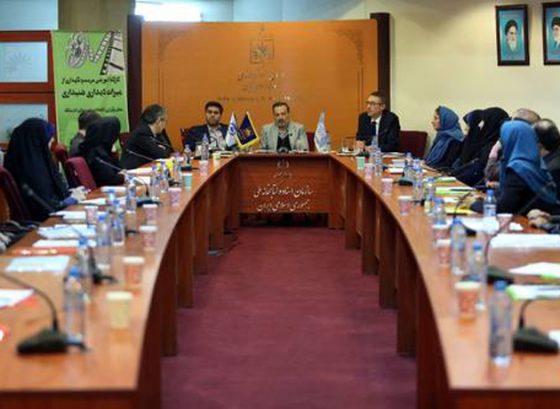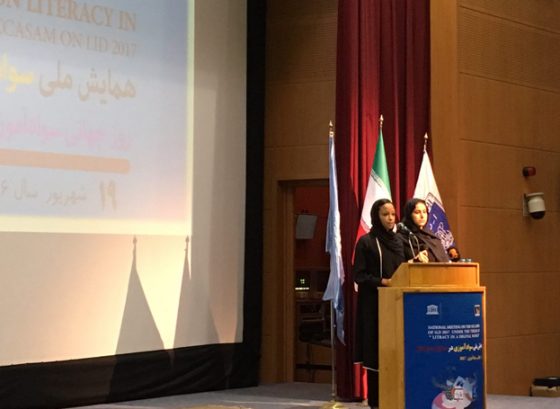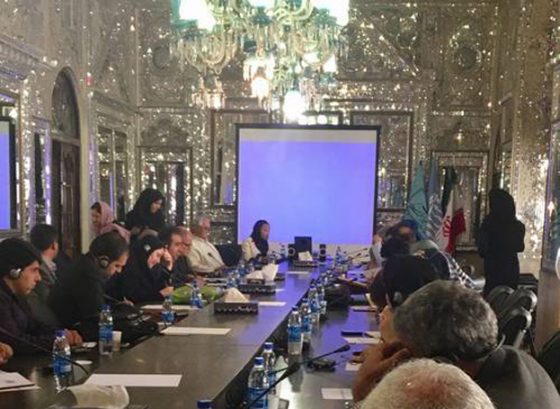UNESCO organizes high-level expert meeting in Tehran on Advances in Groundwater Management & New Tools and Strategies for Coping with Droughts

The UNESCO Tehran Cluster Office, in collaboration with the Regional Centre on Urban Water Management under the Auspices of UNESCO (RCUWM), has organized a high-level meeting from 13-16 June 2015, which has brought together global experts from two important networks under UNESCO’s International Hydrological Programme: the Asian G-WADI network (UNESCO’s global network for sharing of knowledge and experience in water management of arid countries) and the International Drought Initiative (IDI), AVA Diplomatic reports.
The meeting was attended by international scientists, UNESCO experts in ground water management and government officials from several countries, including Korea, Afghanistan, Pakistan, Tajikistan and India.
The Government of the Islamic Republic of Iran was represented by Mr. Mahmoudi, Senior Vice Minister of Energy; Dr. Meidani, Deputy Minister of Energy for Water and Waste Water Affairs; Mr. Daemi, Deputy Minister of Energy for Planning and Economic Affairs; and Dr. Nasiri, Deputy Minister of Science, Research and Technology and Secretary General of the Iranian National Commission for UNESCO.
The first day of the meeting was dedicated to discussing the latest developments in the important programmes of IHP, and the participants discussed ways to develop greater synergies between the GWADI and IDI networks in the region.
During the opening session, the Iranian Deputy-Minister of Energy, Mr. Sattar Mahmoudi, highlighted the importance of improving groundwater management for the maintenance of region-wide eco-security.
Ms. Kuisch Laroche, Director and Representative of the UNESCO Tehran Cluster Office underlined the timeliness of this expert meeting as leading global experts serving on the UN Secretary-General’s Scientific Advisory Board recently identified “Providing Drinkable Water for All” as one of the key scientific challenges that must be addressed to ensure sustainability.
“Freshwater is an important resource for human health, prosperity and security. Water scarcity and prolonged drought periods have caused various negative impacts in arid and semi-arid areas including over-exploitation of groundwater and depletion of the water table in aquifers”, said Ms. Kuisch Laroche. “Groundwater is the largest store of freshwater; over 95% of our usable freshwater resources are stored in aquifers as groundwater. In many areas for most of the year, in particular in drought periods, it is the only locally available source for rural as well as urban water supply. Unless protected, groundwater quality deteriorates from saline intrusion, pollution from agricultural and urban activities, and uncontrolled wastewater disposal.”
The UNESCO Representative underscored the insidiousness of drought. “Current climate change projections suggest an increase in frequency, intensity and durations of droughts in some regions, which may impact various sectors such as food production, water supply, energy and health. Yet droughts remain a widely underestimated natural hazard because they develop very gradually, covering large areas, often going unnoticed elsewhere in the world until they trigger a famine or put huge pressure on natural resources, such as groundwater.”
Technical experts, e.g. Professor Sorooshian of the University of California, accentuated the need for a holistic approach to the administration of groundwater. Participants agreed on the need for enhanced monitoring systems and increased coordination between policy makers and scientific bodies.
The accessibility of pooled, reliable data to different stakeholders was also highlighted as a prerequisite for the optimization of groundwater usage.
The second day of the conference brought together a very wide audience of some 260 different players in the water sector of the Islamic Republic of Iran who exchanged views, experiences, and novel tools and strategies in groundwater management and drought management.
On the third and fourth day, the experts will visit Isfahan where they will meet with the local authorities, water experts and academic community to discuss the problems related to the Zayandehroud River.
Designed to help inform Government policy decisions, the conclusions of the expert meeting will be summarized in a final report and shared with the participants.
UNESCO has been working since 1975 on building the scientific knowledge base to help countries manage their water resources in a sustainable way through its International Hydrological Programme (IHP), through leading the UN-wide World Water Development Report, through the UNESCO-IHE Institute for Water Education in Delft in the Netherlands, through over 20 affiliated research centres on water around the world, and through a series of water-related University Chairs.




